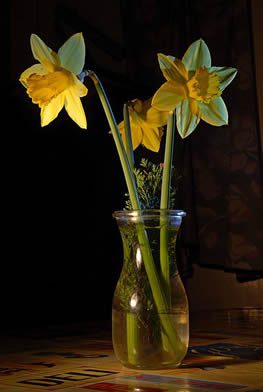Shira Ellenberg
Chicago, Illinois, United States

We stand in a close circle around Michelle as she hands out yellow isolation gowns. We are putting on gloves, preparing ourselves, taking deep breaths.
We are solemn, doe-eyed and beginning a collective inaudible tachypnic chorus.
She tells us about the first time she performed post mortem care.
She was young; it was early in her career—her first job out of nursing school.
She had been working nights.
And after the trauma of a strange and supernatural experience—one that she endured without company or consolation—she swore she’d do everything she could to make sure the nurses under her tutelage never had to feel as frightened as she did.
As much as I want to know what happened, as badly as I feel that she had to go through it alone, to experience trauma, I am so thankful that she is here to be our guide, and I am thankful that this man gets to have her and us.
I have been providing care for this man since the morning.
When he was still alive, writhing and heaving.
He looked no different than he does now.
I have been looking in on him, attending to him since I agreed to take him on as a patient—even with the warning that he was nearing death.
Now though, his face is whiter than it was before, and something about the air around him seems to have died too.
I am clutching the post-mortem care kit that I got from a slot in the stock machine labeled “body bag.”
I am standing next to his head, and I am thinking about what it must be like to be there, in front of me, dead.
I am trying to make sense of things as I prepare to put in his dentures like I promised his daughter I would.
We are surrounding his bed like a force field—uselessly trying to protect him from the unknown, the unseen.
Clad in billowy yellow isolation gowns flowing over our green uniform pant, we are adorning him, in his death, like bouquets of Daffodils.
The last time we gathered around a patient in bed, inadvertently dressed as trumpet-shaped flowers, we were just observing, learning about the woman with C-dif who was bleeding from everywhere.
Then we were doe-eyed and silent and watching.
It was day one of week one, and today is day 14 of week 7, and now we are no longer watching.
We are doing; we are announcing; we are helping this man along his way.
We work quickly and together.
We fetch the supplies and follow Michelle’s precise and time-sensitive instructions as she soothes our nervousness with gentle assurance.
We watch as his blood starts to settle. His body is still warm from the fever, but his extremities are ice cold.
We coax his right eyelid closed, tie his hands and feet together, and secure a cotton strap under his chin and around the back of his head.
I am gentle when I put in his dentures, bottom first.
Something about having teeth seems dignified, and I want to give this man back the dignity he had before the stage two pressure ulcers and the generalized edema and the nasogastric tube and the triple lumen catheter, which was fastened to the right side of his neck with two sutures.
I want to give him back his dignity even as we secure him in this white, plastic body bag. I get upset when the top flap covers his face, and my first instinct is to pull it away so he can breathe again.
And once he is in, ready for the morgue, with the zipper at his feet, we prepare the room, trying to clear out the signs of what has happened here.
There’s another patient on another unit that’s been waiting for this bed.
We work quickly and together, filling big plastic trash bags with linens and towels and the red container with various types of “medical waste.”
And then we are done.
Billowy yellow isolation gowns get balled up, and we can leave the room and the still air and the incredible sense of loss that will take several days to dissipate.
And it’s over, and we’re not talking, not saying much of anything, but still sharing the experience, ready to go home until we hear the shrill, piercing beeps of the next code blue.
SHIRA B. ELLENBERG graduated from Columbia College Chicago with a degree in Marketing Communications and a specialty in Public Relations. Her work as a dental assistant with a mobile pediatric dental team serving children in Chicago public schools enabled her to tap into the empathetic and compassionate sides of herself. This led her to pursue nursing. Shira was then accepted into the Generalist Entry Masters program in Nursing at Rush University in Chicago. She is expecting to graduate in March 2011. She intends to build a fruitful career in healthcare where she can provide nurturing and support to those in need: in life and in death.
Highlighted in Frontispiece Fall 2010 – Volume 2, Issue 3

Leave a Reply